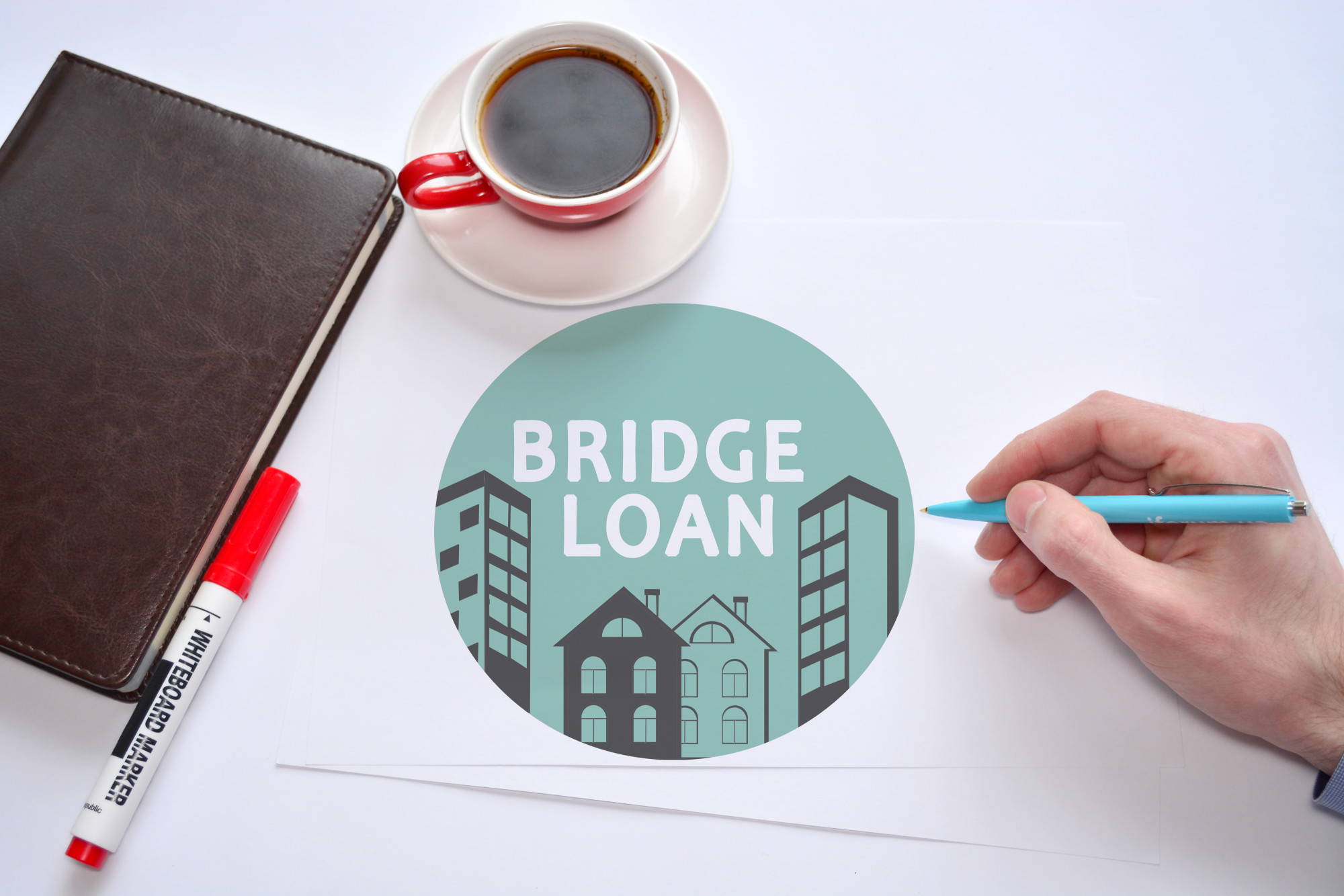Did you hear that there is a total of $177.9 billion in unsecured personal loans in America?
Buying or selling a home can be stressful, especially if you need to take out a loan to make it happen.
You might not know about all of your options when it comes to real estate loans. There are many different types of loans available, and it’s important to choose the right one for your situation.
But don’t worry. We’ve researched for you, and feel a bridge loan is a choice for you. Keep reading our bridging loan guide to finding out what is a bridge loan in real estate and the pros and cons of this loan.
What Is a Bridge Loan in Real Estate?
A bridge loan is a simple loan that is used to subsidize the purchase of a property or asset when traditional financing is not a choice. Bridge loans are typically used by investors or developers who are unable to acquire conventional funding for their projects. Bridge loans can be used for a medley of purposes. Let’s look at them in more detail now:
1. To Finance the Purchase of a Property When Traditional Financing Is Not Available
If you are looking to purchase a property but cannot obtain traditional financing, a bridge loan can be a good option. Bridge loans can be used to finance the purchase of both residential and commercial properties.
2. To Finance the Construction of a Property
If you are looking to finance the construction of a property, a bridge loan can be a good option. Bridge loans can be used to finance the construction of both residential and commercial properties.
3. To Finance the Renovation of a Property
If you are looking to finance the renovation of a property, a bridge loan can be a good option. Bridge loans can be used to finance the renovation of both residential and commercial properties.
4. To Provide Working Capital for a Business
If you are looking to provide working capital for a business, a bridge loan can be a good option. Bridge loans can be used to finance the purchase of inventory, equipment, or other business-related expenses.
5. To Consolidate Debt
If you’re struggling to make ends meet each month, it can be tough to get ahead financially. One way to ease the burden is to consolidate your debt with a bridge loan. By taking out a loan to pay off multiple debts, you can reduce your monthly payments and get on the path to financial freedom.
Bridge loans can be used for a variety of purposes, including paying off credit card debt, medical bills, or even your mortgage. If you’re interested in consolidating your debt, speak to your financial advisor about whether a bridge loan is right for you.
Now that we have looked at what a bridge loan is, let’s look at common home bridge loan rates.
Common Home Bridge Loan Rates
The interest rate on a bridge loan is typically higher than the interest rate on a traditional loan. The reason for this is that the lender perceives the loan as being riskier. For example, if you are looking to finance the purchase of a property, the lender will perceive the loan as being riskier than a traditional mortgage because you have not yet purchased the property.
However, if you are looking to finance the construction of a property, the lender will perceive the loan as being less risky because you have already purchased the land. The interest rate on a bridge loan will also vary depending on the term of the loan. For example, a 6-month bridge loan will have a higher interest rate than a 2-year bridge loan.
The interest rate on a bridge loan will also vary depending on the type of property you are looking to finance. For example, a bridge loan for a residential property will have a lower interest rate than a bridge loan for a commercial property.
What Are the Benefits of a Bridge Loan?
There are several benefits of a bridge loan. Let’s look at them now:
1. Bridge Loans Can Be Used to Finance the Purchase of a Property
If you are looking to finance the purchase of a property, a bridge loan can be a good option. Bridge loans can be used to finance the purchase of both residential and commercial properties.
2. Bridge Loans Can Be Used to Finance the Construction of a Property
If you are looking to finance the construction of a property, a bridge loan can be a good option. Bridge loans can be used to finance the construction of both residential and commercial properties.
3. Bridge Loans Can Be Used to Finance the Renovation of a Property
If you are looking to finance the renovation of a property, a bridge loan can be a good option. Bridge loans can be used to finance the renovation of both residential and commercial properties. Bridge loans are typically short-term loans that are used to fill the gap between the time when a property is purchased and when it is refinanced with a long-term loan.
These loans are usually interest-only, meaning that you will only have to pay the interest on the loan during the term of the loan. This can be helpful if you do not have the cash flow to make monthly payments on a traditional loan.
4. Bridge Loans Can Be Used to Consolidate Debt
If you are looking to consolidate your debt, a bridge loan can be a good option. Bridge loans can be used to pay off existing debts and reduce your monthly payments. By consolidating your debt with a bridge loan, you can lower your interest rate and save money on your monthly payments.
Additionally, by consolidating your debt with a bridge loan, you can pay off your debt faster and become debt-free sooner. If you are considering using a bridge loan to consolidate your debt, be sure to shop around and compare rates from different lenders. You can also talk to a financial advisor to see if a bridge loan is a right option for you.
5. Bridge Loans Can Be Used for Other Purposes
While bridge loans are most commonly used to finance the purchase of a new home before the sale of an existing one is complete, they can also be used for other purposes. For example, bridge loans can be used to fund business expansion or to provide working capital during a slow period.
In addition, some borrowers use bridge loans to consolidate debt or to pay for major repairs or renovations. Regardless of the purpose, bridge loans typically have higher interest rates than traditional mortgages and are intended for short-term use. As such, borrowers should carefully consider their needs before taking out a bridge loan.
What Are the Disadvantages of a Bridge Loan?
There are several disadvantages of a bridge loan. Let’s look at them now:
1. The Interest Rate on a Bridge Loan Is Typically Higher Than the Interest Rate on a Traditional Loan
A bridge loan is a type of short-term loan that is typically used to finance the purchase of a new home before the borrower’s current home has sold. Because bridge loans are considered to be higher-risk loans, they typically come with higher interest rates than traditional loans.
The reason for this is that the lender perceives the loan as being riskier. In addition, bridge loans are often structured in such a way that the borrower is only required to make interest payments, rather than principal and interest payments. This means that the borrower may end up paying more in interest over the life of the loan.
However, bridge loans can be a useful tool for borrowers who need to purchase a new home before their current home has sold.
2. The Term of a Bridge Loan Is Typically Shorter Than the Term of a Traditional Loan
When a borrower takes out a bridge loan, they are normally doing so to fund the purchase of a new property before their current property has sold. This means that the loan is assured by the equity in the borrower’s existing home. Because the loan is only intended to be a temporary solution, the terms are typically shorter than those of a traditional mortgage.
The typical term for a bridge loan is six months to one year. This shorter term means that the borrower will have to make higher monthly payments. However, it also means that they will save on interest costs over the long term. For borrowers who are confident that they will be able to sell their current property quickly, a bridge loan can be an ideal solution.
3. You May Have to Make Monthly Payments
When you are looking to finance the purchase of a property, you will typically have to make monthly payments on the loan. This is because the lender wants to be sure they will get their money back, and making monthly payments ensures they will. However, if you are looking to finance the construction of a property, you may not have to make monthly payments on the loan.
This is because the lender knows that they will get their money back when the property is completed and sold. So, if you are looking to finance the construction of a property, you may not have to make monthly payments on the loan.
4. You May Have to Pay Origination Fees
When you are taking out a loan, one of the fees that you may have to pay is an origination fee. This is a fee that is charged by the lender to cover the cost of processing the loan. Bridge loans are no different and you may have to pay an origination fee when you take out a bridge loan.
The amount of the origination fee will vary depending on the lender, but it is typically a percentage of the loan amount. For example, if you take out a $10,000 loan with a 2% origination fee, you would owe the lender $200. Origination fees are just one of the costs that you need to be aware of when taking out a loan, so be sure to ask about them upfront.
5. You May Have to Pay Closing Costs
When you take out a loan, there are several fees and costs that you may have to pay. These can include things like appraisal fees, origination fees, and closing costs. Closing costs are the fees charged by the lender when you close on the loan. Bridge loans are no different and you may have to pay closing costs when you close on a bridge loan.
Closing costs can vary depending on the lender and the loan amount, but they can add up to a significant amount of money. Before you take out a bridge loan, be sure to ask about all of the fees and costs that you will be responsible for. That way, you can be prepared for all of the expenses associated with the loan.
If you are ready to apply for a loan, check out: https://www.heffinance.com/cannabis-real-estate-loans.php
Ready to Apply for a Bridge Loan?
You now know what is a bridge loan in real estate. A bridge loan can be a great solution when you need money quickly to purchase a new property. Bridge loans are short-term loans that give you the time you need to guarantee long-term financing.
The terms and interest rates on bridge loans vary, so it’s important to do your research before applying.
If you’re thinking of taking out a bridge loan, be sure to check out our blog for more articles like this one. We have tons of information about mortgages and other real estate topics to help you make the best decisions for your family and your future.



